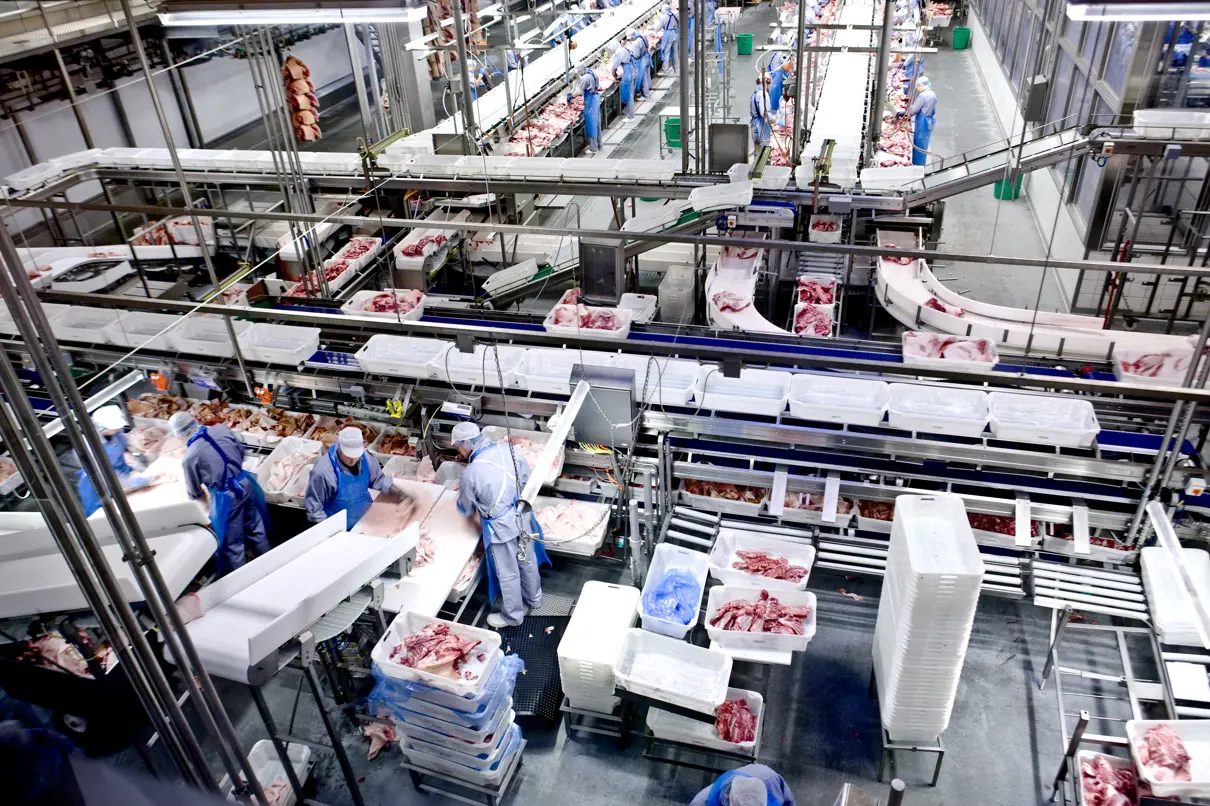When a cooperative owner of Danish Crown reads the company’s annual report and looks at the payments received for pig deliveries during the year, up to three Danish kroner per delivered kilo is missing compared to the EU index against which Danish Crown measures itself.
Consequently, the supply of slaughter pigs to Danish Crown decreased in the fiscal year 2023/24 (October through September). The Ringsted abattoir was closed, and a massive savings and efficiency plan has been implemented.
“The quotation we pay to our owners has not matched our Danish competitors nor has it been close to the European benchmark in the past year. Although the key figures in our report show that we are financially robust, Danish Crown is in a crisis when you look at our relative performance. Right now, we are facing a further decrease in the supply of pigs of about five percent in this fiscal year. It is a negative spiral, so we are putting all our efforts into restoring our competitiveness”, says Niels Duedahl, who assumed the role of Group CEO at Danish Crown on September 1st.
Decline in net profit
In the fiscal year 2023/24, Danish Crown's operating profit (EBIT) increased by 1.2 percent from DKK 2,398 million to DKK 2,427 million. Net financials increased by DKK 143 million to DKK 679 million, and despite the income from the sale of Agri-Norcold, the special items - due to provisions, impairments, and costs exceeding app. DKK 750 million - increased from DKK 200 million in the fiscal year 2022/23 to DKK 466 million last year. Net profit, therefore, declined from DKK 1,469 million in 2022/23 to DKK 1,042 million in 2023/24, a decrease of 29 percent.
“Viewed in isolation, the operating profit of Danish Crown are at an acceptable level, but we have not provided the returns that our owners rightly expect. Therefore, we are drawing a line and writing down the value of several assets which are not sufficiently contributing to the profitability of the company. It is a drastic but necessary step to restore our competitiveness,” says Niels Duedahl.
Danish Crown Beef has performed well, slaughtering 1.5 percent more cattle in Denmark compared to the previous year. However, the earnings of Scan-Hide, which sells cattle hides for leather production, have disappointed. The sales of luxury bags, furniture, and large cars with leather interiors have been affected by the economic downturn, forcing Scan-Hide to significantly write down its inventory during the year. This has impacted Danish Crown’s ongoing quotation payments to cooperative owners, and at the same time, the two German cattle abattoirs have underperformed.
Varying contributions from portfolio companies
Overall, the portfolio companies have not contributed sufficiently to the group's earnings. Swedish KLS and trading company ESS-FOOD deliver stable results that meet expectations. DAT-Schaub has lost momentum due to rapidly decreasing prices in sales to the pharmaceutical industry, causing earnings to decline from DKK 961 million to DKK 558 million. Sokołów in Poland is challenged by tough competition for orders from Polish retail chains, causing earnings to fall from DKK 194 million to DKK 132 million.
The Board of Directors proposes a final payment for pig suppliers of DKK 0.70 /kg and a distribution from the undistributed equity of DKK 0.06 for all kilos delivered over the past five years. For a cooperative owner who has delivered an average of 10,000 pigs per year over the past five years, this amounts to approximately DKK 900,000. For sow suppliers, a final payment of DKK 0.80/kg and a distribution from the undistributed equity of DKK 0.04 for all kilos delivered over the past five years is proposed. Cooperative owners who deliver cattle are expected to receive a proposed final payment of DKK 1.35/kg and a distribution from the undistributed equity of DKK 0.11 for all kilos delivered over the past five years.
- The Board of Directors is very aware that it has been an unsatisfactory year for cooperative owners who supply slaughter pigs to Danish Crown. Our payments have not matched those of our Danish competitors, and at the same time, our company's earnings have not been strong enough to pay the final payment that our cooperative owners expect. Therefore, we have chosen to supplement the final payment with an extraordinary payment from the undistributed equity, as we believe it will help secure future supplies of slaughter pigs, says Asger Krogsgaard, chairman of Danish Crown.
Focus on competitiveness
The payment from the undistributed equity is only possible because Danish Crown is generally a financially sound company. In the fiscal year 2023/24, working capital has been reduced from a net of DKK 7.4 billion to a net of DKK 6.4 billion. Financial gearing has decreased from 3.3 to 2.8, while the solvency ratio remains at an unchanged level.
- In the coming year, we must improve our earnings performance, and the key focus for us is to re-establish our competitiveness in pig quotation. We have already implemented a comprehensive savings and efficiency plan to at least match the payments of our Danish competitors. At the same time, we need to narrow the gap to the German price, as it will make it more attractive to fatten pigs in Denmark and increase cooperative owners' confidence in Danish Crown as a company, says Niels Duedahl.
Since the end of the fiscal year, Danish Crown has carried out a round of layoffs and reduced the number of salaried employees in the core business by 500. Together with several other savings and efficiency measures, this should reduce total costs by at least half a billion kroner.
